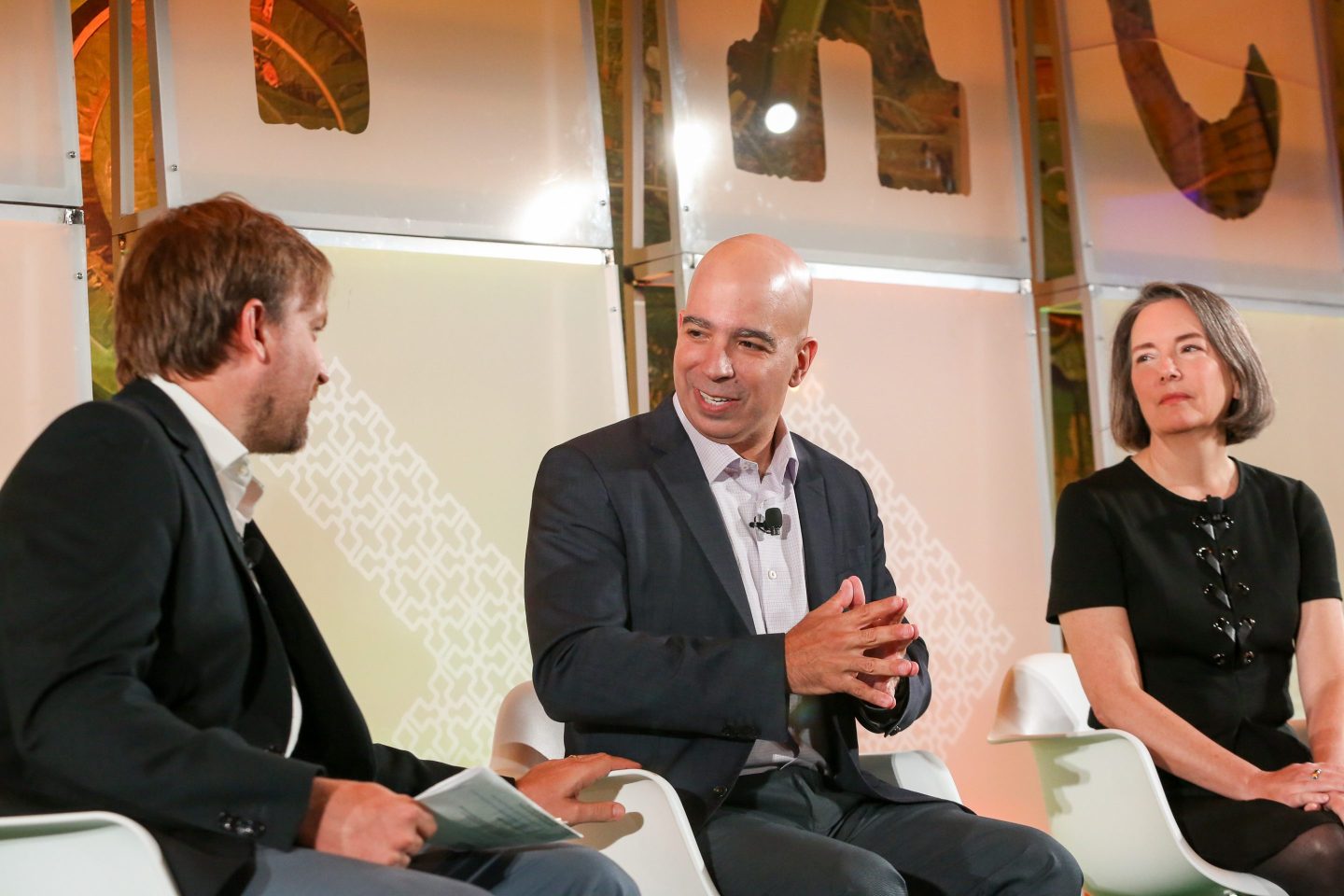Good morning.
We’ve just wrapped our second annual meeting of the Fortune Impact Initiative, which was created to give top corporate ESG officers a forum to share experiences and best practices. But since launch, it also has become a place to observe how the companies at the forefront of this movement are dealing with a sizable backlash, particularly in the U.S. My takeaways:
—ESG is alive and well, even if companies are talking about it less and in different ways. The notion that large companies must pay more attention to the impact of their actions on people and planet has become embedded in the strategies of the best corporations, and is increasingly expected by employees, business partners, investors and a growing group of consumers.
—Having said that, there’s widespread agreement that ESG is an awkward, polyglot acronym, and its implementation has been erratic. The backlash is forcing companies to focus their efforts more carefully on the pieces most important to their business and to clearly demonstrate the value to their business.
—Some companies are pausing action on diversity, in part because of a spate of lawsuits against corporate diversity programs in the wake of the Supreme Court decision on affirmative action in college admissions. And there has been a pronounced slowdown in new corporate commitments to climate action, in part because companies are waiting to see how the SEC’s disclosure rules will affect them.
Some other excerpts from the event:
“People don’t buy sustainable products. They buy great ones. But I don’t think any product can be considered great these days if it hasn’t considering sustainability.”
—Tim Brown, co-founder, Allbirds (which previewed its new, zero-carbon shoe at the event.)
“All of that is for nothing if we are not successful with the business first. We have to succeed as a business first, and we have to be unapologetic about that.”
—Roger Martella, chief sustainability officer, GE
“Our focus is on shared value. It’s just simply recognizing that our long-term business success really depends on the extent we can address the relevant concerns to our business and on the minds of our associates, our customers, our suppliers, our communities.”
—Kathleen McLaughlin, chief sustainability officer, Walmart
More news from the Impact Initiative here. And other news below.

Alan Murray
@alansmurray
alan.murray@fortune.com
TOP NEWS
Defending workplace diversity
Thirteen civil rights groups are joining forces to defend workplace diversity and inclusion policies from legal challenge. “We need to make sure that we rise up because the threats to Black and Brown people in this country are very real,” Alphonso David, CEO of the Global Black Economic Forum, said at Fortune’s Impact Initiative conference in Atlanta. Conservative legal activists are now targeting corporate programs that promote diverse workplaces, alleging they constitute racial discrimination. Fortune
Starlink revenue
Starlink, the satellite internet service from SpaceX, is running behind its aggressive targets. The service reported $1.4 billion in revenue last year, according to internal documents, far below the company’s previous target of $12 billion in 2022 revenue. Starlink is targeting those who don’t already have easy and cheap options for internet access, like rural households or those at sea–both proving to be inherently small markets. The Wall Street Journal
IHOP hedge fund
Creditors of embattled Indian edtech firm Byju’s are accusing the startup of transferring over $500 million to a small hedge fund that listed a Florida IHOP as its address. Byju’s, at one point India’s most valuable startup, says it had the right to transfer the money as it saw fit. Deloitte, which sponsors this newsletter, quit as Byju’s auditor in June, after it didn’t receive financial data for the 2021-2022 fiscal year. Financial Times
AROUND THE WATERCOOLER
An architecture CEO says there’s too much focus on return-to-office rates. The real conversation is the future of hybrid work by Emma Hinchliffe and Joseph Abrams
The workers that Fortune 500s most need to solve the burnout crisis are the most at risk of quitting themselves by Alexa Mikhail
Commentary: BlackRock and Vanguard were once ESG’s biggest proponents–now they seem to be reversing course by Bob Rubin
Walmart CSO says the trouble with ESG is it’s ‘become a boogeyman’ but the Fortune 500 giant is ‘addressing the things that matter’ by Paolo Confino
New Census data shows why Americans hate the economy despite economists telling us to feel good about it by Alicia Adamczyk
UPS denies union claim that blockbuster pay deal that will see drivers haul in $170,000 a year will cost shareholders $30 billion by Christiaan Hetzner
This edition of CEO Daily was curated by Nicholas Gordon.
This is the web version of CEO Daily, a newsletter of must-read insights from Fortune CEO Alan Murray. Sign up to get it delivered free to your inbox.














